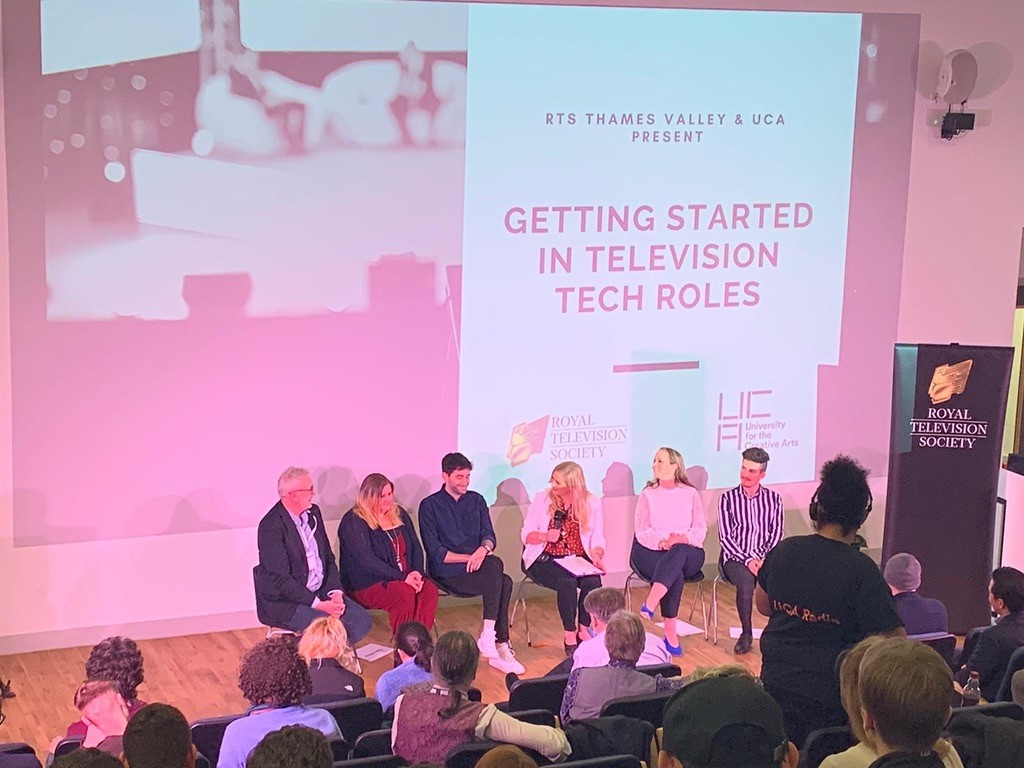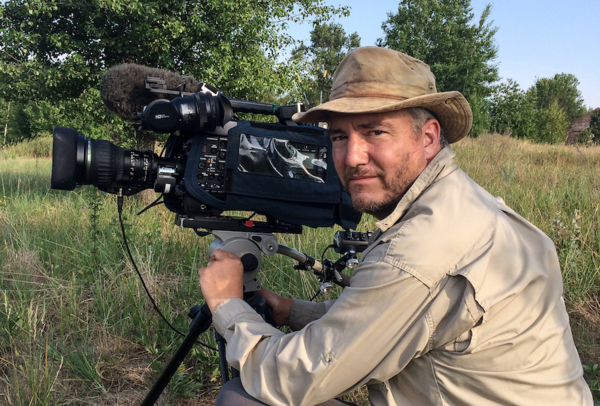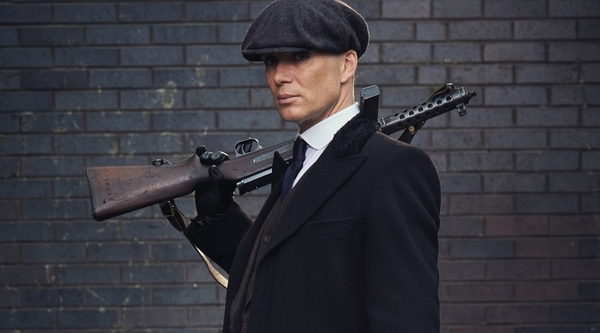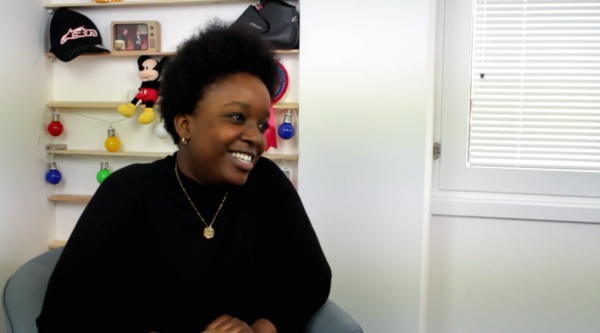tips
RTS Thames Valley: Getting started in TV tech roles
Jonathan Glazier, studio multicamera director on shows that include Asia’s Got Talent and Million Pound Drop, advised the students to make their own content. “I started with a Super-8 camera [when] the filming and developing costs were very high, but now everybody has a mobile phone camera in their pocket,” he said.

How to become a news camera operator
Channel 4 News cameraman Dai Baker has travelled around the world, including a ten-year stint at the broadcaster’s Washington bureau.
He’s now based in Wales where, alongside a reporter and producer, he films and edits news packages from Wales and the West Country - although he’s always on standby to go further afield, covering the inauguration of Donald Trump in the USA and the political protests in Barcelona (see video below).
Advice from BECTU's Sharon Elliott on how to break into TV
Whether you land your first job with one of our broadcasters, or with an independent company, remember that television production should reward not just those who own the assets but every single person who contributes to the production, from the runner upwards.
Peaky Blinders and Riviera Cinematographers stress the importance of lighting
Lighting is key to camera work, says cinematographer Laurie Rose. It’s essential to establishing a look or mood for a scene. “The important thing is to tell a story and create mood using light,” he explains.
Between them Laurie and cinematographer Matt Gray have credits on shows as varied as Peaky Blinders, Broadchurch and Riviera.
Cracking Telly: Screenwriter Ryan Brown shares his story
Although still early in his career himself, Brown has been making waves, having won the Bafta New Writing Prize of Drama in 2016, and been runner up in an Idris Elba-fronted writing competition, 'Write to Greenlight'.
Competitions are now key to breaking into the industry as a young writer, he believes. While in the past it was possible to get your break with a killer script and the right opportunity, now young writers need an ‘in’. Competitions, he believes, are the key.
How to Survive as a TV Freelancer
Join us on Wednesday 24th May for some top tips...
Speakers include:
Barny Revill, Series Director (Life at the Extreme with Davina McCall, Secret Life of Dogs)
Angela Oakhill, Head of Production, RDF West
Glenn Rainton, Editor (The Great British Bake Off)
Other speakers to be announced...
Hosted by Lynn Barlow, Chair, RTS Bristol and Director of Creative Industries, UWE
RTS Members free
£5.50 for non RTS members
Drinks and networking in the BBC bar after the session
Tea Break Tips: Building a career in comedy with Lolly Adefope
She has been making waves on the comedy circuit taking her exaggerated characterisation and relatable comedic humour to the Soho Theatre in her show Lolly 2.
The comedian, who specialises in character comedy, has made a number of appearances as a comedy actor in shows including Rovers, Plebs and Sicknote.
Her latest TV project sees her alongside fellow comedians Greg Davies and Alex Horne on Dave's comedy panel show Taskmaster.
Tips in 60 seconds... Using your voice as a presenter
Catherine Weate is a voice and dialect coach. She provides one-to-one and group sessions for those in the media about how to talk on television.
Here she explains how to deliver a news item naturally on camera.
For more information on Weate's voice coaching follow her @voicesupport or check out her website.
Tips in 60 seconds... How to pitch for non-scripted entertainment at Sky
Bill Hobbins is the commissioning editor at Sky Factual. His commissions include Sky 1’s Freddie Flintoff fries again and Wild Things, which won Best Entertainment Programme in the Broadcast Digital Awards 2015.
Here he explains how to grab his attention when pitching an idea.







